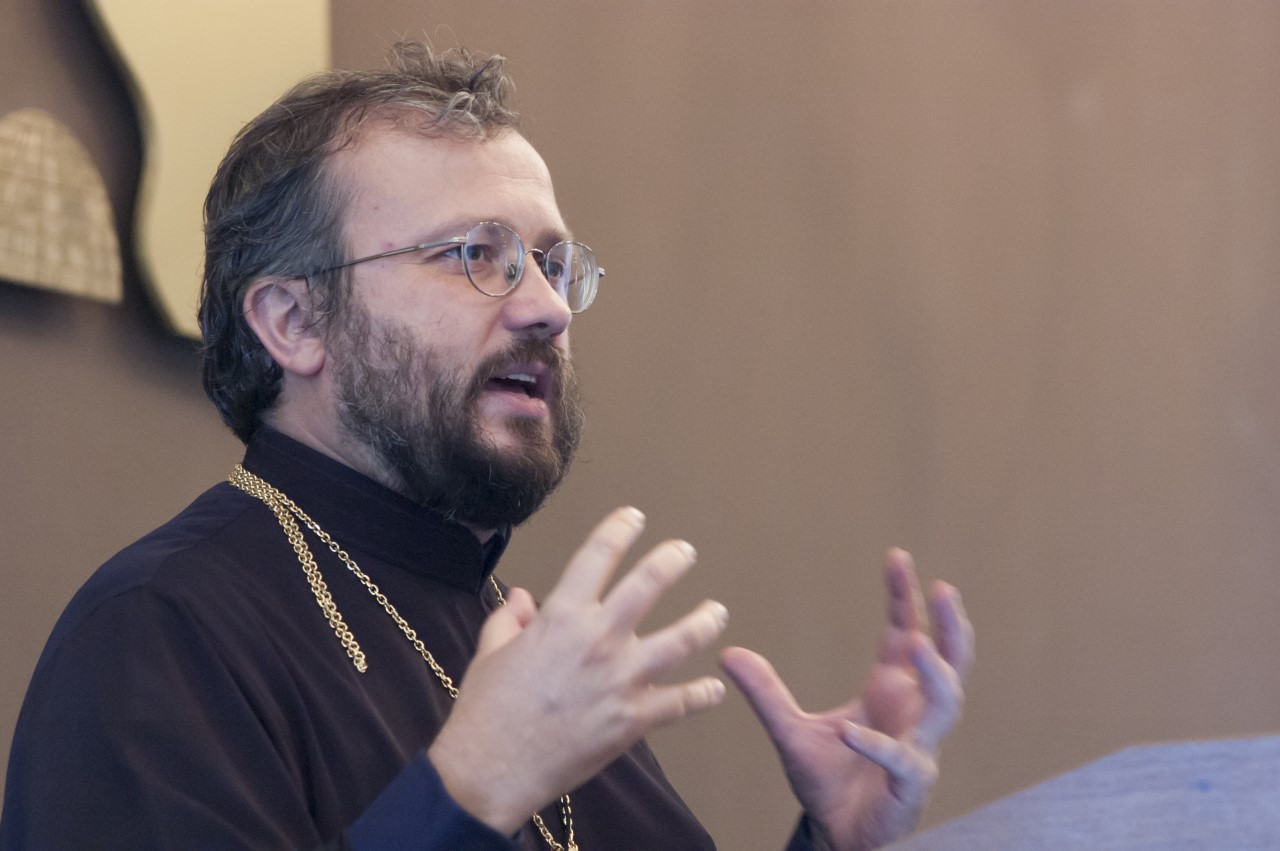
On April 4th, the University Church hosted eminent Ukrainian theologian Prof. Arch. Cyril Hovorun for a lecture on the role of Orthodox Christianity in the Russian invasion. Hovorun explained how the Russian Orthodox Church is entangled in the geopolitical aspirations of the Kremlin. Not only does the Moscow Patriarchate support the war, the church also supplied the political theology for the ideology of “Russian World”: the idea that there is an organically unified orthodox Russian civilisation, which includes Russia, Ukraine and Belarus. Fr. Hovorun critiqued the ideology of the Russian World with other approaches to religion and politics that have been developed by Orthodox scholars, notably the ecumenically minded perspectives from the 1920’s and the 1960’s. He thus suggested that the direction which Patriarch Kirill has chosen is not the inevitable direction of Orthodoxy, and that theological alternatives are, in fact, available.
The lecture was followed by a roundtable with experts from across Europe. They discussed how the Kremlin projected good and evil onto the Russian and Western civilisation. Such broad brush projections also occur in the context of populism and the far-right, and come with a warning to Christian churches: how do they relate to this form of dehumanisation? Do churches recognise the danger of equating one’s real and perceived opponents with “evil”? How do they respond to it? Panellists explored different responses, ranging from humanitarian support to those affected by the invasion to the need for political theologians to contribute to new ideas about the relationship between Christianity and power. All stressed the importance of ecumenical solidarity, within existing councils of churches, but also in ecumenically-spirited initiatives in the wider Christian tradition, including at universities.
You can watch a recording of the lecture below.